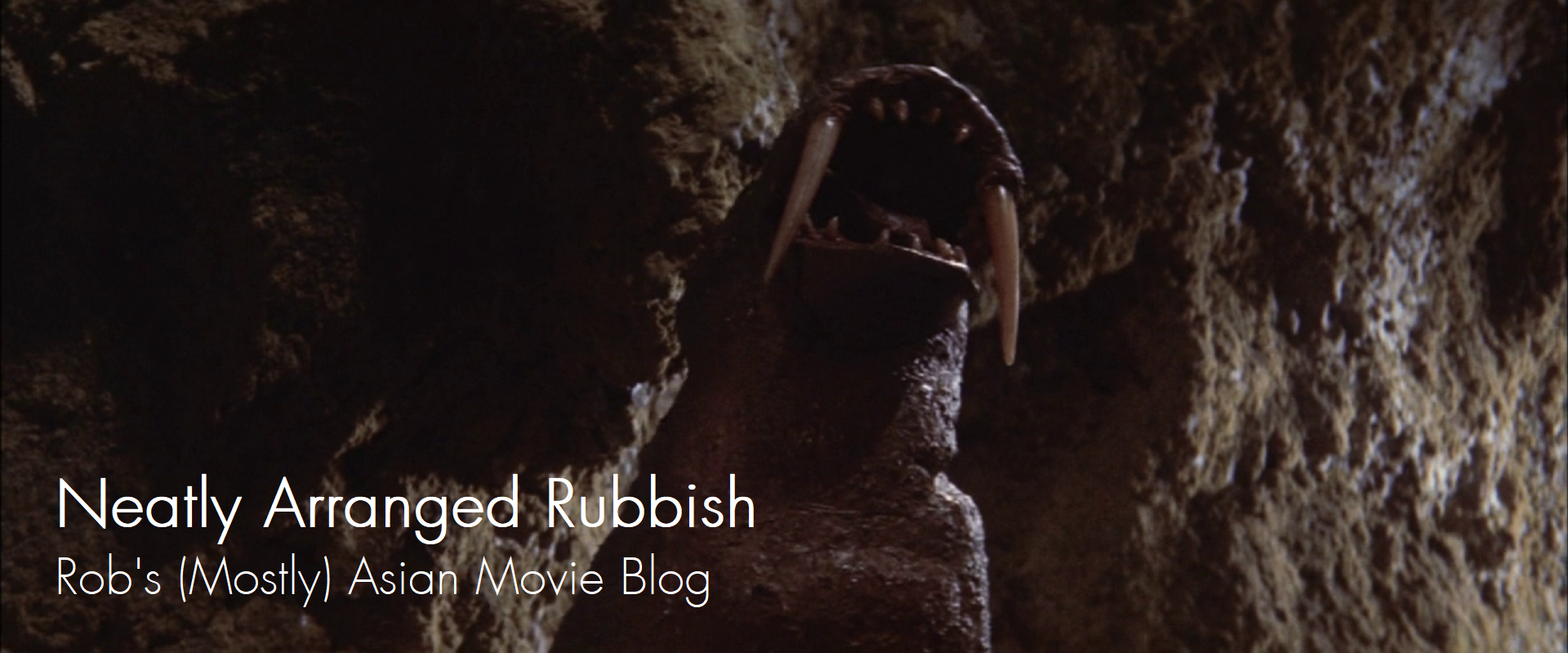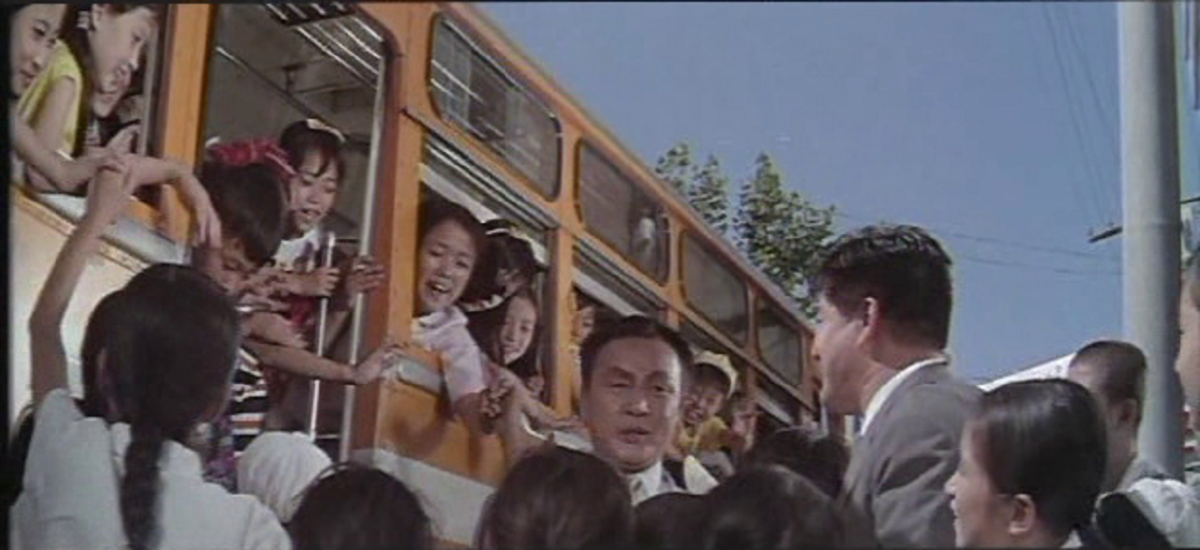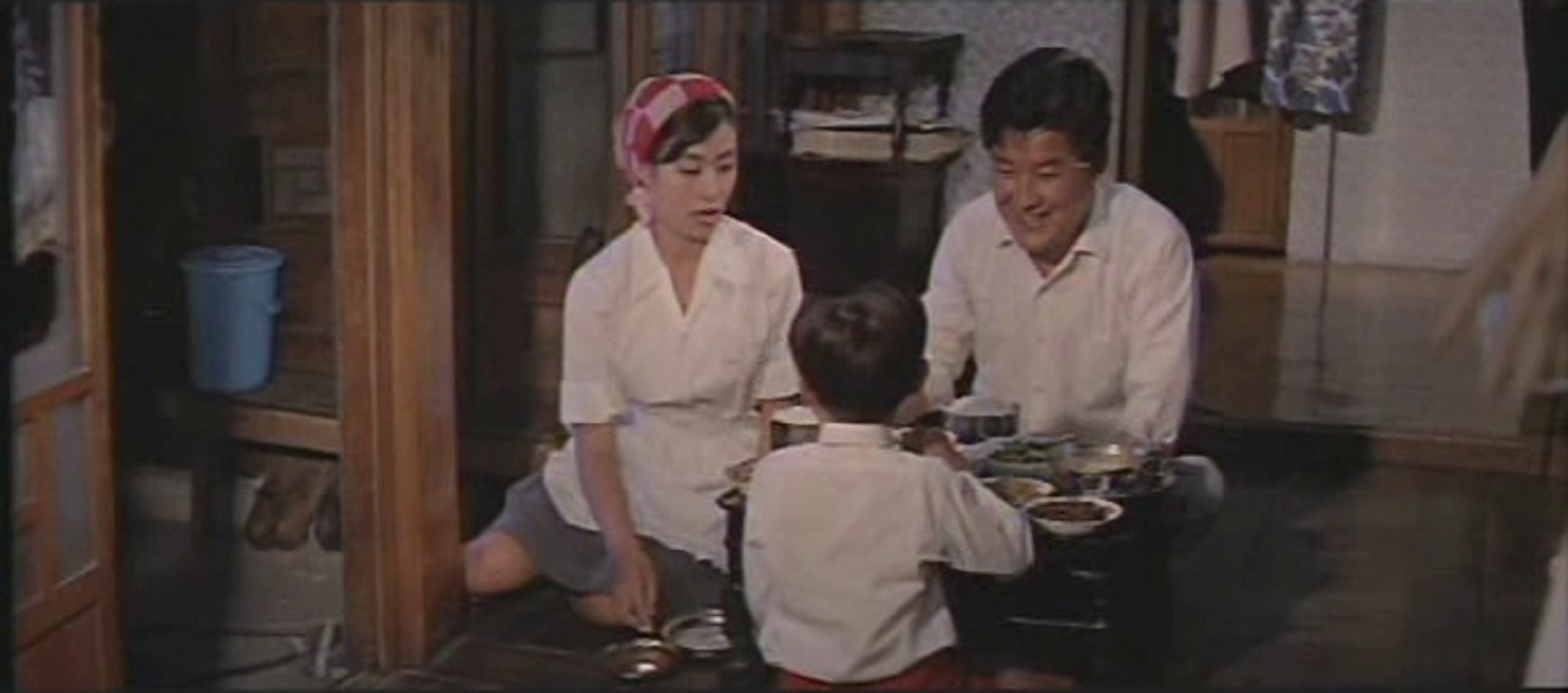Last Updated on November 14, 2020 by rob
On a tiny remote island off the Korean coast a schoolteacher named Mr. Kim takes a class of young children on their first ever trip to the country’s capital, Seoul.
A lovely account of simple island kids exploring a big city and winningly told through the eyes of children whose wonderment at seeing the likes of skyscrapers and neon lights for the first time in their lives is as nothing to them watching a television interview with their teacher Mr. Kim (a charismatic Koo Bong-seo) being interviewed and thinking he’s actually talking directly to them. Along the way a variety of typically melodramatic SK subplots – from Kim’s estrangement with his wife (South Korean superstar Moon Hee), to the kid he’s had to leave behind in Seoul, plus another child’s search for the older sister who left the family home to find work in the city – are set up, explored and satisfactorily resolved.
Responsible for one of the greatest South Korean films ever made, 1961’s brilliant Stray Bullet, director Hyun-mok uses a style that’s part-realist, part-poetic and in its story structure unexpectedly modernist in order to juxtapose the unspoilt beauty of the kids island home with the rapid industrialisation of Seoul and in the process make a subtle point about there being no place like home. Indeed although the kids visit a local school and end up showered with gifts by the middle-class parents of the children they befriend the sheer extent of the wealth on show after they’re invited to spend the night at one family’s home (refrigerators, washing machines, bathtubs) leaves them struggling to take it all in.
There’s lots of humour here (one of the kids, feeling tired, goes to sleep in a bathtub not understanding its true function) but underneath a kind of melancholia that modern Korean society should be so favouring material assets over its own youth. It all ends happily though as both the kids and even Mr. Kim’s wife and child decide to travel back with him to the island and one is left with the overriding feeling that its director has rather sneakily managed to put one over on the censors. This was after all made under a military dictatorship and a censorship board keen to promote the benefits of rapid industrialisation. Ironically though this doesn’t feel like the film’s actual message at all. The warmth and humanity of the characters, their joy at going back to their island home, that’s what one takes away from this and very satisfying it is too.


